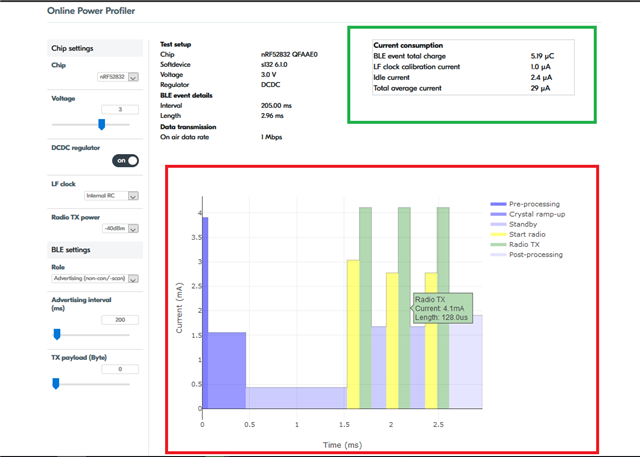HI,
I am using NRF52832,SDK15.2
I need to work on ultra low power consumption because My project related to Health care, Fitness tracker and HOME IOT mesh network.
for that i need to work on the application, read the sensor data, broadcast the respective data to mobile or other ble device.
My expectation is to control the CPU power upto 0.6mA. Is it possible with current BLE_STACK?
or we need to modify in ble stack to achieve this perfect battery life..
for example RUUVI board provides 3.3V 1000mAh battery gives two year battery life.
they are reading the data from two different sensor and broadcast the data to their app


